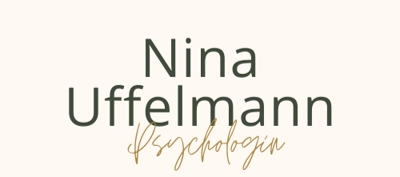I have often heard the sentence "I don't want to make my happiness dependent on my relationship status" from my clients in my psychological counselling sessions. But what exactly does this statement actually mean? Today I would like to shed some light on the facets of the word "happiness" in this statement. The meaning of happiness is of course very individual, but there is probably something that many people have in common.
Happiness = always pleasant feelings?
If "happiness" means feeling good all the time, i.e. having pleasant feelings most of the time, then I must be a spoilsport. That's simply impossible and completely unrealistic. Maybe there is someone in your life who is very important to you, who you like, and then there are problems with them, e.g. an unresolvable conflict or an illness. If you then wish you didn't have to suffer so much, this would contradict the laws of nature - because there are always two sides to the coin. Liking someone goes hand in hand with pleasant feelings, but also always with unpleasant feelings, namely when we could lose what we have in one way or another. Feelings always come in a package - if you want the pleasant ones, you also have to be prepared to accept the unpleasant ones.
The emotions you feel are therefore mostly also dependent on the course of your relationship. There are only a few exceptions to this - for example, if you have experienced a lot of pain, you may have experienced a feeling of numbness. Then you won't feel much pain, but otherwise you won't feel much either. People with an antisocial personality disorder also don't really care how their partner is doing, but most likely neither you nor your partner fall into this category.
Happiness = self-acceptance & self-love?
But perhaps happiness for you also means knowing: "I am lovable the way I am", regardless of whether you are currently in a relationship or not, and regardless of the problems that are currently manifesting themselves in your relationship. However, for many of us, this knowledge is not always sacrosanct. Perhaps you have experienced a relationship in which you were treated with contempt. Or you may have just been dumped or rejected by someone in some other way.
Then, of course, your mind may come up with all kinds of doubting thoughts about your own lovability. Or perhaps you have a particular vulnerability when it comes to the topic of lovability due to your upbringing or other experiences. Many people know about certain experiences. And most people's approach is to banish them from their lives. But this usually doesn't work. When you experience rejection, for example, there is a part of your heart that realises that an old wound has been opened. Even if your head says "It shouldn't affect me like that, don't act like that".
This is where the topic of self-care and self-compassion can come into play. How can you nurture and care for yourself, do yourself good and find a loving attitude towards all facets of yourself?
The novel "Where the crawdads sing" by Delia Owens, for example, is a wonderful reminder that we are forever being moulded by the child within us. Written in a very exciting way, it may help you to look more lovingly at your painful experiences and supposed weaknesses as a person. Perhaps it can also help you to understand that the people who don't see your kindness are the ones who are poor, not you.
But maybe happiness means something else to you than having consistently pleasant feelings (which is unrealistic anyway) or the inner knowledge that you are lovable just the way you are. What do you want your happiness to depend on? Feel free to share it in the comments.

